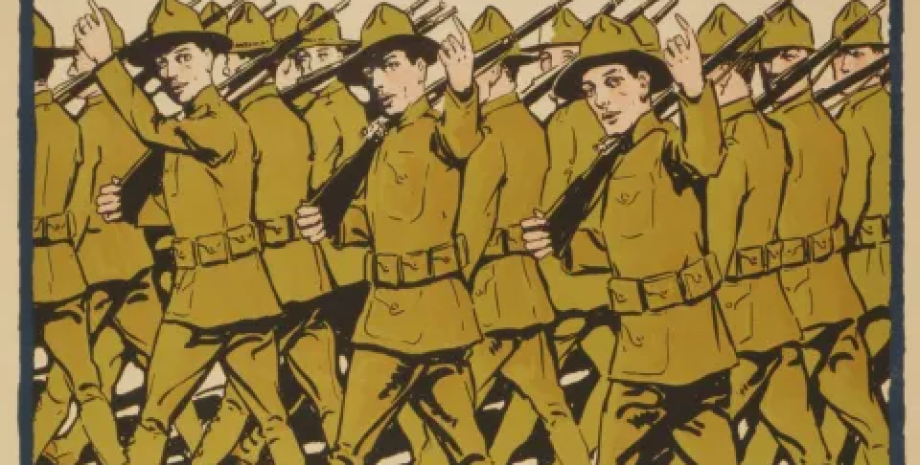
In his book "Great Illusion" in 1910, Angel argued that developed countries become so economically dependent on each other that the cost of international conflicts far exceeds their benefits, Big Think writes. In focus, technology appeared its Telegram channel. Subscribe not to miss the latest and most intrusive news from the world of science! Unfortunately, his prediction was false: five years later, the First World War began, and in 1939 - World War II.
Angel hoped that the North Atlantic Treaty, which was replaced by previous attempts to unite such as the League of Nations Woodro Wilson, would finally create a stabilized world order, which he wrote most of his career. It is difficult to overestimate how popular and influential at one time was a "great illusion". Initially published under the name "Optical Illusion of Europe", it has parted over a million copies and translated in 25 languages.
By embodying the positivism and progression of Fin de Siècle, the contagious faith of Angella in a peaceful future brought him a Nobel Peace Prize; In academic circles, scientists talked about "Norman Angelism". "War," he wrote, "no longer has the excuse that it gives the survival of the strongest; it implies the survival of less adapted. The idea that the struggle between nations is part of the evolutionary law of human progress, involves a deeply false reading of biological analogy.
do not inherit the land; they represent the declining human element. " However, in the early 20th century, the belief in the unjustifiedness of the war coexisted with another, contradictory emotion: the fear of conflict with Germany. There, for centuries of romantic literature and provocative military theory, people have learned the opposite of everything that Angel defended: wars cannot be avoided, it is inevitable. It was not unnecessary or false, but has become a key aspect of human experience.
At the heart of the tactics of Alfred von Schliffen and Karl von Clausevitz, according to the historian Barbara Tukhman in her book "Guns August", noted by the Pulitzer Prize, philosophers, such as Fichte, Hegel and Nietzsche, "who saw the German people. To take the highest place in the history of the universe "and" lead the world to the glorious destiny. " The unprecedented bloody massacre of the two world wars seriously undermined the authority of Angella.
These events testified that the world became more warlike and no less warlike. However, some scholars insist that the "great illusion" has been unjustly discarded by readers. It is believed that its basic postulates today are as valuable as when the book first appeared in bookstores. One of these researchers was the historian Howard S. Weinrot, who argued that "Angel's thesis is that modern wars are economically irrational, distorted, and now the reader can read that they are absolutely impossible.
" In this, Angel is undoubtedly right: the First World War, which cost $ 208 billion, prepared the Great Depression, and the Second World War turned Western Europe from a global superpower into a US paw. "The more complicated our commercial system," Angel wrote, "the more our joint prosperity depends on the proper implementation must also dominate the behavior of governments. " "Great Illusion" not only does not explain the world wars, but also helps to explain why they have happened.
Both in the 1910s and in the 1930s, Germany and other parties in the war were in the hands of leaders who valued other things other than business. Generals and demagogues put ideology in the first place, while kings and queens emphasized power and personal relations with neighboring empires. Although largely forgotten, Ralph Angella's work remains relevant today.
According to Michael Rüle, a member of the new NATO security challenges in his article, the same factors that contributed to the world wars - "excessive nationalism, radical ideologies and false isolationism" are growing again today, showing the need for international peacekeeping organizations. Norman angelism was not a static doctrine, but evolved throughout his creator's life.
Before the signing of the North Atlantic Treaty, Angel, according to Rüle, departed from the "safety of economic interdependence", focusing on the "principle of collective security - a system that includes the potential use of force against the offender. " Although states sometimes act contrary to their own economic interests, the peacekeeping potential of interdependent economies should not be underestimated.
For example, political analysts suspect that sanctions against Russia, after its invasion of Ukraine, were rejoined by China from claims to Taiwan, an island in the South Chinese Sea, which is the head of the PRC, the China Czinpin wants to reunite with the mainland.










All rights reserved IN-Ukraine.info - 2022